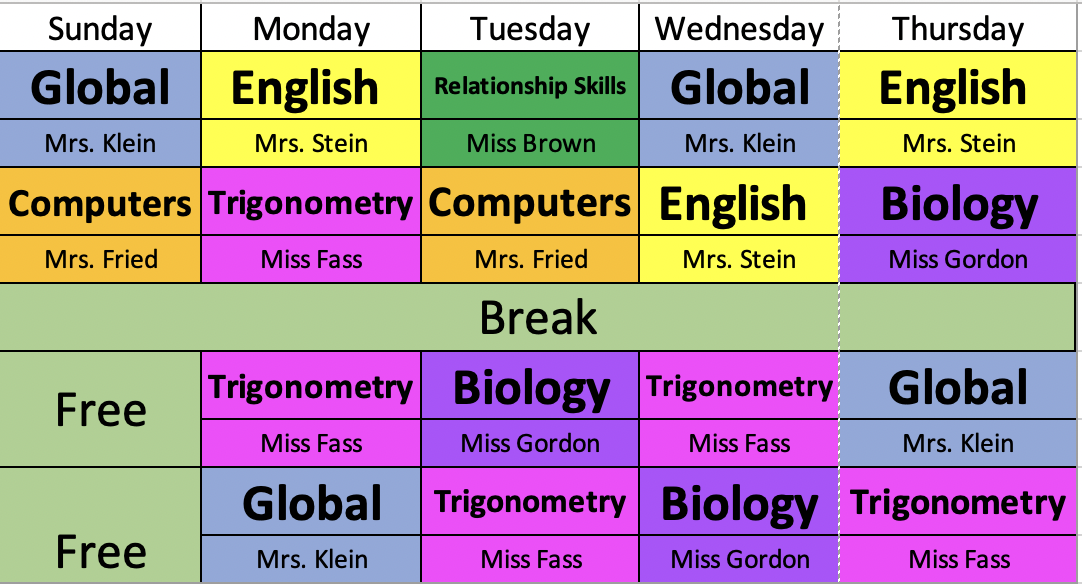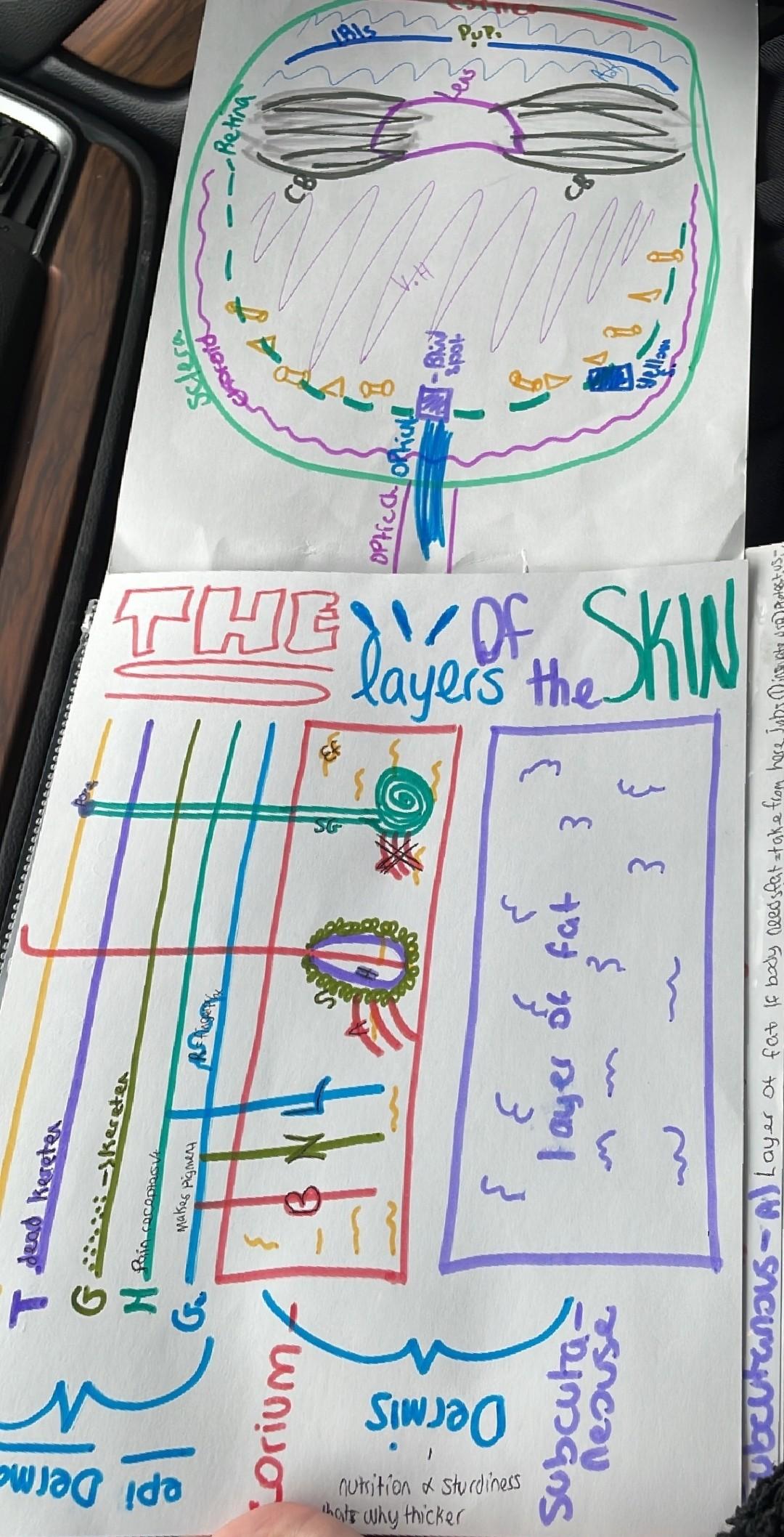|
In the beginning of the school year, I shared a color-coded weekly school calendar for a high school student who was feeling overwhelmed with all the subjects, teachers, and materials required for each class.
(Below is the calendar we set up at the start of the school year. You might recall this visual.)

Several weeks before midterms, we worked on a variety of planning, self-talk, and study strategies (executive function skills) to help her succeed during this stressful time period.
Today, this student returned after midterms and was gracious enough to share what helped her succeed. In fact, her super-insightful and attuned mom requested that we spend our entire session reviewing and celebrating this success as it was a 180 degree experience from last year’s midterms. We wrote up all the strategies below.
Thank you to my High School Hero and her Cheerleader Mom! Here goes.
(Feel free to use the strategies below for your child or student.)
- I did well throughout midterms because…
- I did well for the past few months, and I had the confidence from past successes to keep going.
- I managed my expectations. Last year, my goal was to get 100% on each exam. When I didn’t get those grades, I felt like I was done and I wasn’t doing this anymore. I felt discouraged and I gave up. But this year, one of my goals was to decrease my anxiety. “Passing” was another goal. This in itself decreased my anxiety.
- In addition to my goal of simply “passing” exams, I remembered that some subjects were not worth stressing over regardless of the grade I got. So, I was pleasantly surprised when I passed or did much better than passing.
- I used study skills to help me study.
- I locked myself in my bedroom or the bathroom (and sat on the bathroom floor surrounded by four boring walls) without distractions until I finished studying. Thereafter, I allowed myself to do something fun I wanted to do.
- I did not procrastinate because I wanted to know the material and be prepared for the tests. I was motivated to do well, and I knew from the recent past (the past few months) that I was capable.
- I created visual charts that I was able to study from especially right before the test.
- It was easier to remember the visuals instead of remembering all my notes.
- I was able to study by myself and didn’t have to count on people because I had notes, and if not, I took care of getting someone’s notes in advance.
- My mother helped me avoid distractions by taking all the kids out one Sunday afternoon so I could study in peace and quiet.
- During weekdays, I studied when all the little kids were still in school because I knew my house was quiet then. I also knew that when the kids came home, it would be my break time as it would be harder to study with so much noise.
- I planned my notes way in advance and didn’t have to scramble at the last minute.
- I wrote my own notes which helped the info go into my brain better.
- Throughout the last few months, I studied for quizzes. Therefore, the information was already familiar by the time midterms came around.
- After a day of midterms, I gave myself good, hearty breaks when I got home. I gave myself time to relax before transitioning to studying all over again for the next set of finals on the following day.
- I gave myself positive, encouraging messages when I was about to give up.
- “I can do it.”
- “Look how much I’ve done so far.”
- “I only have one more page to go and then I’m done. I can definitely do that one page.”
- I trusted myself when I didn’t feel well. I listened to my body.
- I took each test one day at a time. I didn’t think about the upcoming tests of the days and weeks ahead. I only focused on the tests of today.
Below: A hand-drawn visual of the layers of the skin this student created for her science midterm.

Below: A hand-drawn table of Halacha – Jewish law. Because most of the answers were X (not permitted), she only had to memorize the five instances that were permitted + one exception to the rule. It’s much easier to memorize five items than 24!
As my professor and mentor Rabbi Dr. Marty Schloss would always say, “Keep on trucking!”
Yours,
Dr. Devora
|



